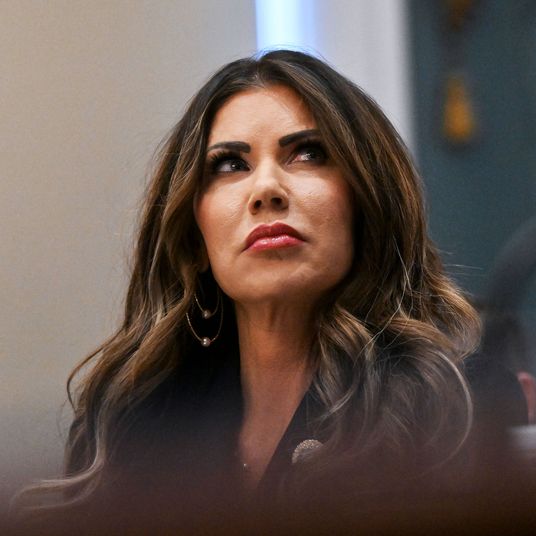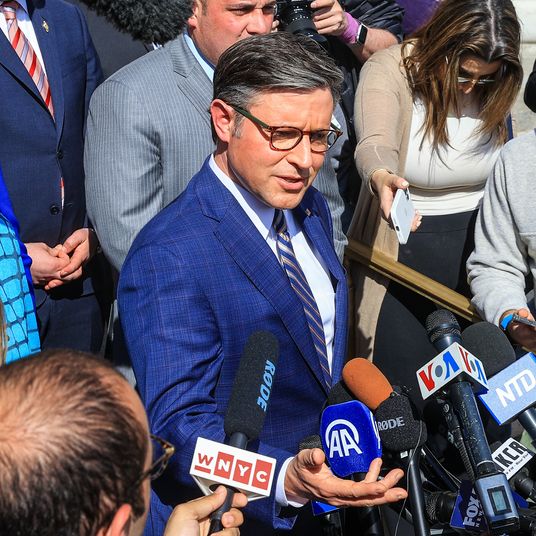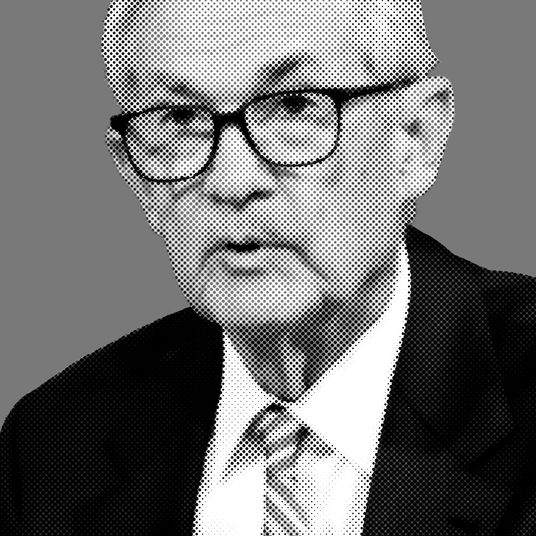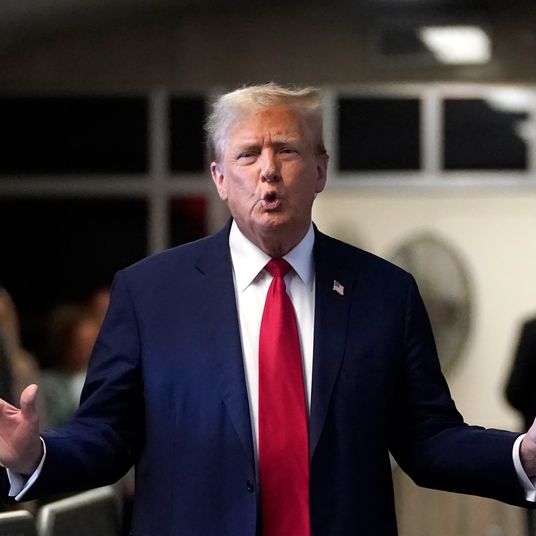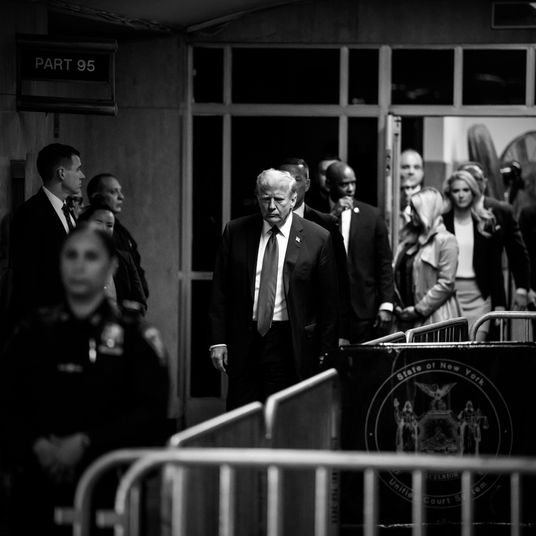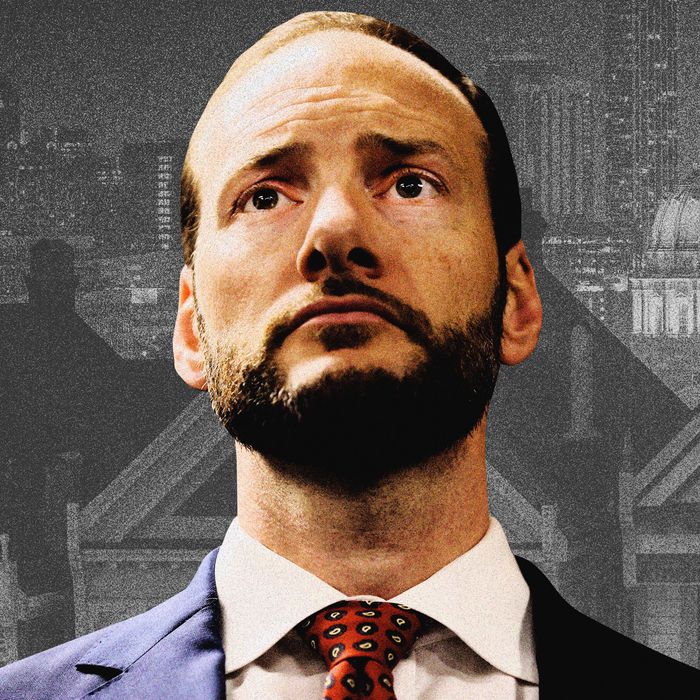
In San Francisco, the signs are everywhere. Near the famed Lombard Street, one is affixed to a lamppost. Several of them, picturing menacing men in black masks, offer admonishments for anyone strolling in the shadow of the Golden Gate Bridge. “Safety Alert,” the words, bold black against orange, warn. “Leave Nothing Behind.”
The signs, property of the city, are there to tell residents and tourists alike to keep nothing of value in their automobiles thanks to a number of car break-ins over the past few years. Everyone, it seems, has a story about a theft or knows someone who had a close call. And if crime isn’t the favored topic among the city’s affluent and shrinking middle class, it’s the rampant homelessness and drug use, now spilling out from the foreboding Tenderloin.
All of this is now falling on the shoulders of San Francisco’s district attorney, Chesa Boudin, who — if the polls are any indication — could be recalled by voters on Tuesday. “People are scared,” says Mary Jung, the former leader of the San Francisco Democratic Party, who is heading the recall. “They want to resume their lives as they lived them before. They want to be able to go out and not worry, ‘Do I have my Mace with me?’”
If Governor Gavin Newsom’s recall was viewed, last year, as a referendum on the Democratic Party’s management of the pandemic — Newsom handily survived a right-wing Republican challenge and now is talked up as a future presidential candidate — the campaign to oust Boudin may presage trouble for progressives and the left more broadly. If Boudin, who was elected in 2019 on a wave of optimism over the future of reform-oriented prosecution, is turned away in San Francisco — the very bastion of liberalism — what hope for the criminal-justice-reform movement is there in the rest of America?
The question is a fair one, if slightly misleading. In some sense, there are two San Franciscos. There is the city of popular imagination, of Harvey Milk and the Beats and Haight-Ashbury, a birthplace for gay rights, and the incubator of just about every progressive movement imaginable. For Americans, and even Californians beyond the cozy city’s confines, it is difficult to fathom that anyone other than far-left Democrats and their allies have reigned supreme ever since the Summer of Love. “In the history of San Francisco, the postwar history of San Francisco, the city has been governed by mayors with left-wing politics for exactly seven years,” says Lincoln Mitchell, an academic and author who has written multiple books on the city’s modern history. “When a tech person repeats the mantra that the left has ruined San Francisco — what left?”
This real San Francisco is a city of fewer than 900,000 people that increasingly lacks a working-class population that could buoy progressive candidates. The city’s Black population is vanishing. The tech boom, now old news, fueled real-estate prices to such a degree that the old-line residents who didn’t have the luck to buy a home 30 years ago or secure a rent-controlled apartment are long gone. A severe housing shortage has never been alleviated, as strict zoning laws strangle new development. There is no sprawling, New York–style network of public or subsidized housing; politicians of all dispositions have accepted homeless encampments as a way of life.
Modern San Francisco, unlike New York, does not rest on the legacy of a social-democratic state forged with New Deal largesse. There are no Fiorello
La Guardias or Robert Wagners lurking in the city’s history. From 1912 to 1963, only Republicans governed San Francisco, and they were largely backers of big business who could occasionally draw support from organized labor. The first nonwhite person to win an election in 20th-century San Francisco, Willie Brown, did not enter office until 1965. Despite San Francisco’s reputation as a liberal nirvana, proud progressive governance came and went quickly. George Moscone was assassinated along with Harvey Milk in 1978. Art Agnos, another liberal Democrat, lost his reelection bid to Frank Jordan, a Democratic former police chief, in 1991.
A right-leaning, if conventional, business Establishment held great sway over San Francisco politics until tech, with its billions, subsumed much of it in the 21st century. Tech money is more formidable than anything a local developer or bank could deploy. Silicon Valley employees, drawn from across America and now fully settled into San Francisco, are an influential slice of the electorate, directly replacing working-class votes. To them, homelessness is more an aesthetic annoyance than a humanitarian catastrophe. Among wealthy San Franciscans, the indignity is tangible — if an extraordinary price is going to be paid to live in Presidio Heights or the Marina District, how can visible poverty be imposed on such a supposedly idyllic lifestyle?
The backlash Boudin has faced has been much fiercer than the likes Alvin Bragg, the new progressive Manhattan district attorney, has endured. In the New Year, Bragg was harshly criticized in conservative and law-enforcement-friendly quarters for announcing he’d no longer prosecute various low-level offenses such as fare evasion while seeking lesser charges for burglaries and store robberies. The widow of a slain police officer blamed him for her husband’s death. Liberals have also excoriated Bragg for failing to prosecute Donald Trump. For a moment, it seemed, opposition to Bragg was reaching a fever pitch. Yet Bragg is not as endangered as Boudin is and could still win reelection in three years. In part, this has to do with the lack of a recall mechanism in New York. The only feasible way to beat Bragg is to run another Democrat in a primary against him. As the first Black D.A. of Manhattan, he enjoys strong support from the city’s Black political Establishment, particularly in Harlem and upper Manhattan. Robust progressive organizations and institutions have not abandoned him either.
No such comparable network exists in San Francisco to defend Boudin.
London Breed, the current Democratic mayor, governs somewhere on an ideological spectrum to the right of Bill de Blasio and has not joined the rest of the Democratic Establishment in defending Boudin. Breed, like any ambitious San Francisco politician, is probably weighing what the recall means for her political future. If Boudin is ousted in June, she can pick his replacement.
Boudin, a 41-year-old political newcomer, has not veered much out of the progressive mainstream home to other progressive prosecutors such as Larry Krasner of Philadelphia and Wesley Bell of St. Louis. Yet he is also not a natural pol and never easily formed alliances in a hyperambitious political universe. San Francisco, like few cities anywhere, manufactures political stars for California and the rest of America. Dianne Feinstein and Newsom were once San Francisco mayors. Nancy Pelosi has been the city’s congresswoman since 1987. Kamala Harris was the San Francisco district attorney, first winning office by defeating a more liberal incumbent.
As he reminds me in an interview, Boudin is endangered by forces largely beyond his control. He cannot build more housing or decide what a judge wants to do with a defendant. A district attorney can’t make arrests or wave a wand to magically lower crime tomorrow. “Their effort to blame me and my office, as though we were the sole actor in the criminal legal system — as though we play God in these cases — is not how the system of checks and balances our Founders devised works,” he says, sounding calm if exasperated over the telephone.
“Homelessness is another issue of frustration,” he continues. “There are lots of city departments, some overseen by the mayor, some by the Board of Supervisors, that deal with housing and housing policy. My office is not one of them. Things have been dishonestly foisted onto my office and onto me.”
The police department, resentful of Boudin, has not always investigated and followed up on certain burglaries. National trends, like the rise in auto thefts, are buffeting him. Robert Weisberg, the co-director of the Stanford Law School’s criminal-justice center, agrees that Boudin inherited a number of challenging sociological problems in San Francisco that his office cannot readily repair. “There’s the general perception of San Francisco as a city in rough shape,” he says. “You have very liberal people saying, ‘I’m very liberal, but I can’t stand someone shooting up right in front of me.’”
San Franciscans, both wealthy and middle class, do perceive a noticeable slippage in quality of life — some of it, at least, pandemic driven — and are restless to punish someone. It doesn’t matter that the actual crime picture, in San Francisco, is muddled. Murders are down 11 percent from a year ago, according to SFPD data. Homicides have been rising since 2019, following the national trend: Forty-one people were murdered in 2019, which increased to 48 the following year, and 56 in 2021. (Baltimore, a city of fewer than 600,000, had 337 homicides in 2021.) Meanwhile, burglaries have plunged 27 percent, robbery is down 3 percent, and motor vehicle theft has only ticked up about one percent from 2021. Larceny theft, however, jumped 24 percent.
Boudin is also prosecuting plenty. His office actually filed charges at a slightly higher rate overall than any San Francisco DA since 2011. The difference — and what has seemed to irk critics, particularly on the right — is that more people charged are channeled into diversion programs that involve alternatives to incarceration, such as rehabilitation or court supervision. Convictions have declined while diversions have increased. Other initiatives come from the progressive prosecutor’s playbook. Boudin, with Breed, helped acquire temporary housing units for victims of domestic violence. He eliminated cash bail. He brought the first-ever homicide charge against an on-duty police officer. He created a commission to review wrongful convictions.
Now all of this, in some form, may doom him.
“Every single news story, whether fair or not, is about criminals and crime,” says a San Francisco Democratic operative unaffiliated with either side of the recall effort. “They have video. This person at a gas station got shot. An older Asian person walking down the street — they knocked them out cold. It’s on TV every night.”
Unlike the Newsom recall, there is no opponent for Boudin to run against, making his political fight tougher. Newsom was able to warn voters that a Trump Republican in Larry Elder could soon seize control of the state; under local recall rules, Boudin’s opponents don’t have to field any candidate. There are no vulnerabilities to exploit. For voters, it’s simply a yes or no question: Do you want Boudin gone?
The recall took flight in 2021, when former mayoral candidate Richie Greenberg first tried to gather the signatures to trigger an election. He fell short, but a second campaign, Safer SF Without Boudin, got the signatures necessary to force the election this month. One flashpoint was the case of Troy McAlister, a man with a long criminal history who ran over and killed two women with his stolen automobile. Critics accuse Boudin of securing a plea deal for McAlister earlier in 2020 instead of trying to send him to prison for life, allowing him back on the streets to kill the two women on New Year’s Eve.
Brooke Jenkins, a former ADA under Boudin now deeply involved in the campaign to recall him, said Boudin thinks too much like a public defender and didn’t prioritize victims of crime. “He cannot widen the factors of consideration beyond just what a public defender would consider,” she says. “He has done nothing to send a message to criminal offenders in San Francisco that there will be accountability, that this behavior won’t be tolerated here, that there will be consequences.”
The recall effort is both a genuine reflection of grassroots anger with Boudin and heavy right-wing cash attempting to dramatically swing a local election.
Recall campaigns don’t have donation limits. William Oberndorf, a Republican megadonor, has pumped more than $900,000 into a PAC backing the recall. Other Bay Area venture capitalists have funneled many hundreds of thousands to an effort that has brought in more than $4 million. Per capita, San Francisco has an inordinate number of wealthy individuals who can punch at a higher weight there than in much larger cities. Recall spending rules free them to try to determine, very directly, the future of the city. “I am extremely worried because if this is happening in San Francisco, this can happen across the country,” says Anabel Ibañez, an officer with the San Francisco Democratic Party and the local teachers union. “It’s not real democracy. Democracy is about ensuring what the vast majority of people want, not what an elite minority wants you to do.”
Boudin can accurately portray some of his opponents as reactionary, but he is vulnerable to backlash from Asian American voters, a powerful constituency in San Francisco that has been victimized by a surge in hate crimes. In 2021, Boudin drew sharp criticism for failing to describe the murder of Vicha Ratanapakdee, an 84-year-old Thai man, as a racially motivated crime. While calling the crime heinous, he said the defendant was “in some sort of a temper tantrum.” He would later charge him with murder and elder abuse, but the political damage was done. Already restive after recalling three education-board members earlier in the year, Asian Americans, along with wealthy whites, could soon end Boudin’s prosecutorial career.
The saving grace for Boudin could be San Francisco’s political Establishment, which has been, outside of Breed and Pelosi, rallying to his defense. The editorial boards of the major newspapers, including the San Francisco Chronicle, came out against the recall. The San Francisco Democratic Party and many major unions endorsed him. Most of the Board of Supervisors are with him too.
If Boudin loses, the criminal-justice-reform movement in San Francisco and across America could be dealt a grievous blow, at least in the short term. Wealthy conservatives, emboldened in California, may hunt for ways to make recall elections legal in other states, hoping to execute an end-run around higher-turnout contests that elected progressive prosecutors in the first place. “Republicans and their police-union allies have tried and failed in traditional elections,” Boudin says. “They’re desperate to go backwards.” If he is recalled, San Francisco, inevitably, will have a more conservative replacement.
Correction: This story previously stated that Frank Jordan was a Republican.







